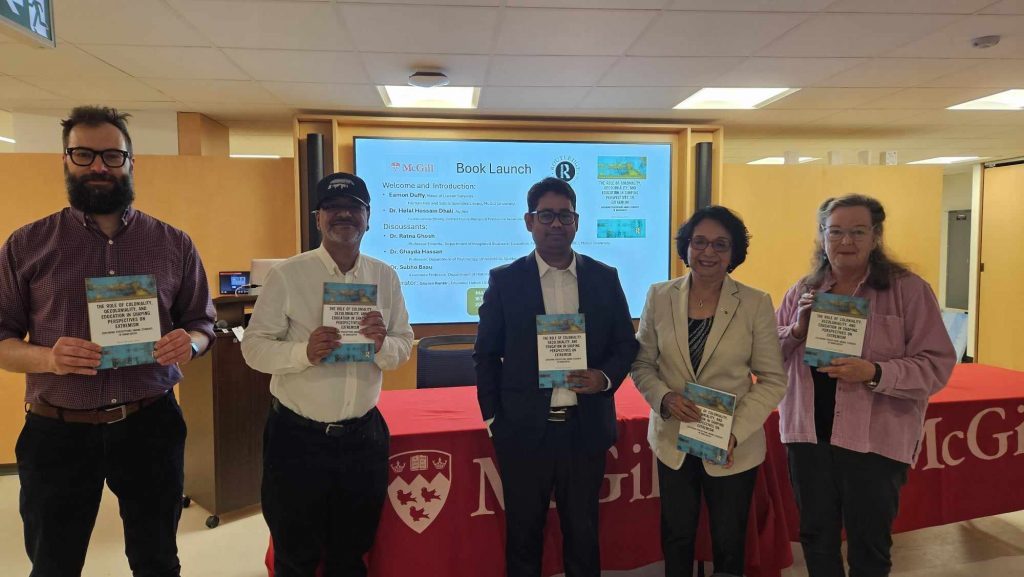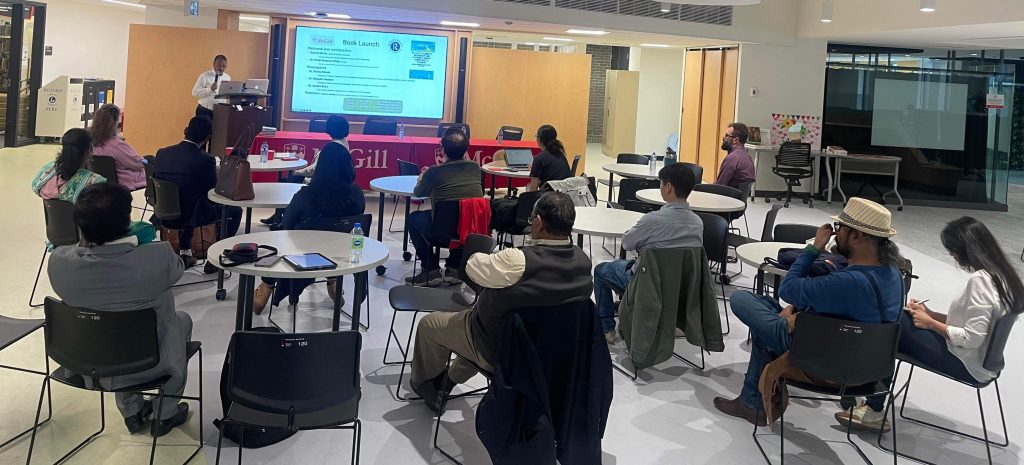
On May 16th, 2024, the Faculty of Education, in collaboration with the Humanities and Social Sciences Library, McGill University Libraries, organized a book launch for Dr. Helal Hossain Dhali’s new book, The Role of Coloniality, Decoloniality, and Education in Shaping Perspectives on Extremism: Exploring Perceptions among Students in Bangladesh. The book was recently published in March 2024 by Routledge.
Dr. Helal, a McGill alumnus, university faculty member, and a postdoctoral researcher at Université du Québec à Montréal, is recognized for his dedication to education and social science research. His research predominantly focuses on marginalized individuals, exploited people, and those vulnerable to violence, conflicts, and extremism.
In his book, Dr. Dhali explores how various entities—states, governments, political parties, institutions, groups, and individuals—can exhibit and evolve extremist tendencies. The book challenges conventional definitions of extremism, offering a broader perspective on how such ideologies manifest. Furthermore, it presents a comprehensive educational model with practical recommendations for policymakers, educators, students, and other stakeholders in the educational sector. Although his research used the perspectives of Bangladeshi students as a model for his research, the author argues that the book can be helpful for any country suffering from any form of extremism.

The book launch, co-organized by McGill Libraries, featured valuable speeches and discussions. “Books will always be central to a library’s mission,” said Eamon Duffy, Head of Liaison Services, Humanities and Social Sciences Library, McGill University Library. Eamon also highlighted the importance of celebrating the achievements of McGill authors, and how this could be “the first of many”. The panellists, Dr. Ratna Ghosh (Department of Integrated Studies in Education, DISE), Dr. Ghayda Hassan (Department of Psychology, Université du Québec à Montréal), and Subho Basu (Department of History, McGill University), offered critical insights into the issues addressed in Dr. Dhali’s book, enriching the discussion with their diverse academic perspectives.
